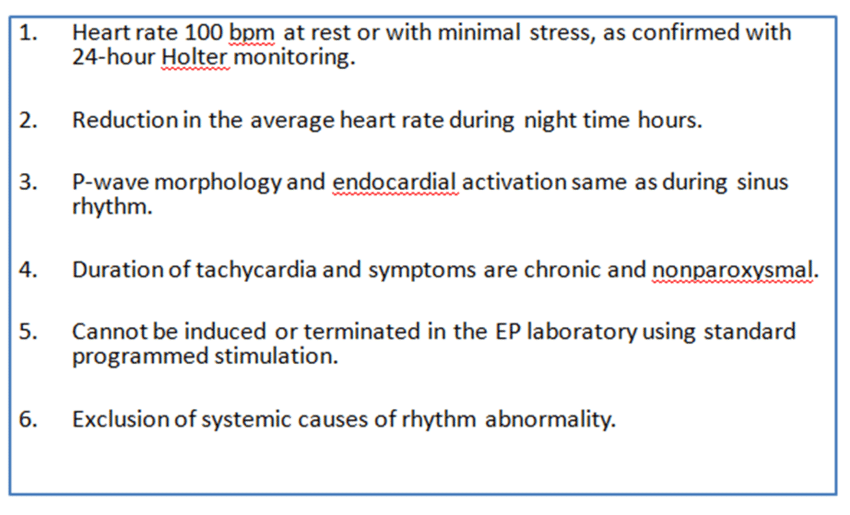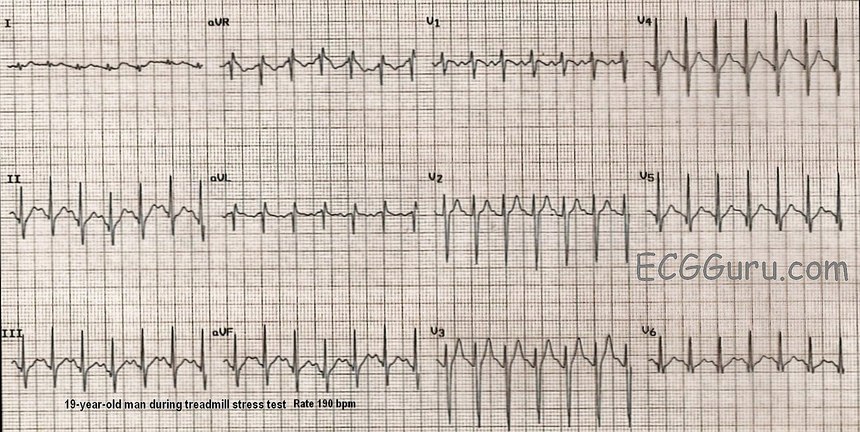
Inappropriate or over-the-counter sinus tachycardia (ISTC) occurs when the body's heart beats too fast without any cause. It's a kind of irregular heart rhythm disorder known as arrhythmias. Tachycardia, otherwise known as fast heartbeat, is the medical name for a fast heart beat. In children, a faster heart beat when a child is at rest, called tachyarrhythmia, is sometimes referred to as tachycardia, too. The heart beats faster, even when in a resting state.
Sinus tachycardia, also called sinus arrhythmias, can cause excessive pressure on your sinuses, making them feel stuffy. A high percentage of the patients have a thick yellow or green nasal discharge that is odorless and has a foul smell. Patients having this problem will usually experience a racing heartbeat. Other symptoms may include pain or cramps in the chest and neck or difficulty breathing. If left untreated, these symptoms can worsen and cause more complications.
This condition can be caused by sudden increase in stress or anxiety. If you experience sinus arrhythmias, the doctor will determine whether or not it is caused by allergies. Other causes of this problem are infections, tumors, alcohol consumption, and certain medications. The medical professionals have yet to identify all the causes of this condition, but they can identify the most common ones.
A sudden increase in stress and anxiety can make you hyperventilate
When this happens, the nasal passage becomes congested with mucus and other secretions from the lungs. The congestion causes the flow of air to be rapid and uneven. This condition may result in sinus arrhythmias.
Common medications used to treat sinus problems can cause this condition. Beta blockers such as Ativan or Xanax are usually prescribed to combat stress. Triptans are also available over the counter. They are also effective in reducing stress.
Other sinus arrhythmias are caused by tumors. They can be difficult to diagnose at first and difficult to treat. Doctors believe that these conditions cannot be cured. Most doctors can prescribe decongestants and non-steroidal anti-inflammatory drugs. If left untreated, they can cause permanent damage.

Sinus headaches are often stress-related. If your headache is caused by this problem, your doctor will likely recommend that you take relaxation techniques such as meditation or yoga before bed. Some doctors may advise you to stay at home while you are being treated, as stress can make the problem worse. If stress is not relieved, they may recommend antidepressants or benzodiazepines as treatment. These drugs are very effective in relieving stress and relaxing the mind. These drugs help relieve muscle tension.
Certain foods can cause sinus arrhythmias. One such food is chocolate, which is said to stimulate blood circulation in the sinuses. Sinus headaches can also occur if you drink coffee and eat a caffeine-rich diet. In addition, smokers tend to suffer from sinus headaches because the smoke irritates the sinuses and blood vessels in the nose and throat. These factors are usually corrected by smoking cessation.
Other conditions that may cause a sinus headache are chronic sinusitis and cystic fibrosis
The symptoms of chronic sinusitis include nasal congestion, sore throat, mucus in the mouth, and coughing. Cystic fibrosis is a chronic respiratory infection that causes thick mucus in the lungs. The thick mucus causes congestion in the chest, throat and nose. People with chronic sinusitis may experience fever and cough with little warning.
People with heart disease, diabetes, or kidney disease, have increased risk for sinus conditions. People who have high cholesterol levels have a greater risk for sinus problems because the cholesterol builds up in the arteries and decreases the blood flow to the sinuses, which causes sinus congestion.
Doctors generally treat sinus arrhythmias by treating the cause. If the symptoms are caused by infection, antibiotics may be prescribed. The medicines are to reduce inflammation and improve the patient's immune system, making them more susceptible to infection.
Although sinus arrhythmias are treatable, they can lead to permanent damage if they are left untreated. It is always advisable to visit your doctor regularly for checkups, and the symptoms. Regular monitoring and treatment are necessary to keep the condition under control.

